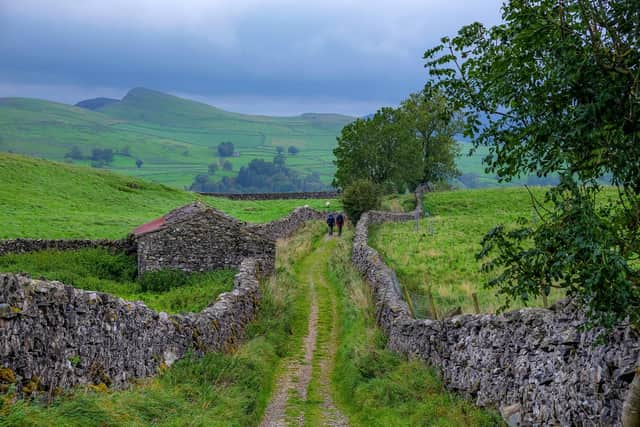If we’re not careful there will be more Waitrose vans than tractors on the roads of our National Parks - Sarah Todd
Hats off to the weekend’s Yorkshire Post for flagging up concerns jointly raised by the chairman of our county’s Dales and North York Moors National Parks about proposed new permitted development rights. In short, the authorities are worried about potential policy that would allow the conversion of agricultural and other rural buildings, shops, offices and cafes within the parks into second homes and holiday lets without planning permission. They are right to take their very genuine concerns to Prime Minister Rishi Sunak.
This correspondent spent the second half of her childhood growing up on a farm within a National Park. There surely isn’t a single person from the same background who doesn’t know a farming family who have about bankrupted themselves and gone through huge emotional stress to try and get planning permission on their own land to provide much-needed housing for staff, growing family or to create diversifications to keep their farm viable.
Advertisement
Hide AdAdvertisement
Hide AdOthers in villages and hamlets across England’s green and pleasant land have felt like they were banging their heads against brick walls - no, better make that stone - as they have tried to put up a conservatory, granny flat or such like.


Then there are the others (sometimes it always seems to be incomers with big budgets for specialist planning consultants who know their way through any loopholes) who seem to plough ahead with developments without so much as a bump in the road.
There was a letter in the local newspaper recently, with a villager describing themselves as ‘indigenous’ in reply giving a long-standing traditional rural resident’s viewpoint in a story about people complaining about an agricultural business’s lorries operating early in the morning.
This is a phrase the Lakeland shepherd and author James Rebanks has used; reflecting that sometimes he has felt akin to a Red Indian; marginalised in his own people’s land. If those serving on local authorities, especially in rural areas, do nothing else they should familiarise themselves with the early life story of Mr Rebanks.
Advertisement
Hide AdAdvertisement
Hide AdNational Parks need to be living and breathing places; they can’t be completely wrapped in cotton wool.
For too long the planning stranglehold in National Parks has, in this writer’s opinion, been too tight. National Parks need to allow young local families to put up a new house in grandma’s big garden. Otherwise the second home brigade really will take over. All properties will become identikit, Farrow & Ball paint on the door and good taste blooms from the colour palette featured at that year’s Chelsea Flower Show in the front garden. Clean cars parked outside and no “nowthen” to neighbours. If it goes on unchecked there will be more Waitrose vans than tractors on the roads.
Our local market town used to be full of farmers coming in to sell their livestock. They are now a rare breed. The town is now noticeably populated by a completely different species; many seem to have professionally groomed cockapoos with jackets on, no work to do on a weekday and cars less than three years old.
There is nothing wrong with this. But the marginalisation of traditional rural residents has been ignored for far too long. The shift in population that has seen country people feel like a dying breed in their own communities needs properly looking into and professionally analysing.
Advertisement
Hide AdAdvertisement
Hide AdOften it’s incomers who have the time to fill in online questionnaires and petitions or volunteer to sit on committees. All credit to them for stepping up to the plate; but as those with speedy internet access have come to the fore others have maybe been forgotten.
Getting a feel for life right now in the National Parks is impossible to get online. It will only ever be achieved by knocking on outlying doors; very much a clipboard job. There should be discussion get-togethers in village halls (advertised by leaflets through letterboxes). To not do this risks alienating a large chunk of the population.
No column written by a country person could finish without making mention of the Tory’s Jacob Rees-Mogg for saying he wants Britain to have access to cheaper food such as hormone injected beef from Australia.
Top marks to leader of the National Farmers’ Union Minette Batters for calling him out with the riposte: “One thing’s for certain, the Aussies would have deported him if he were representing them.” Never has a truer word been spoken.